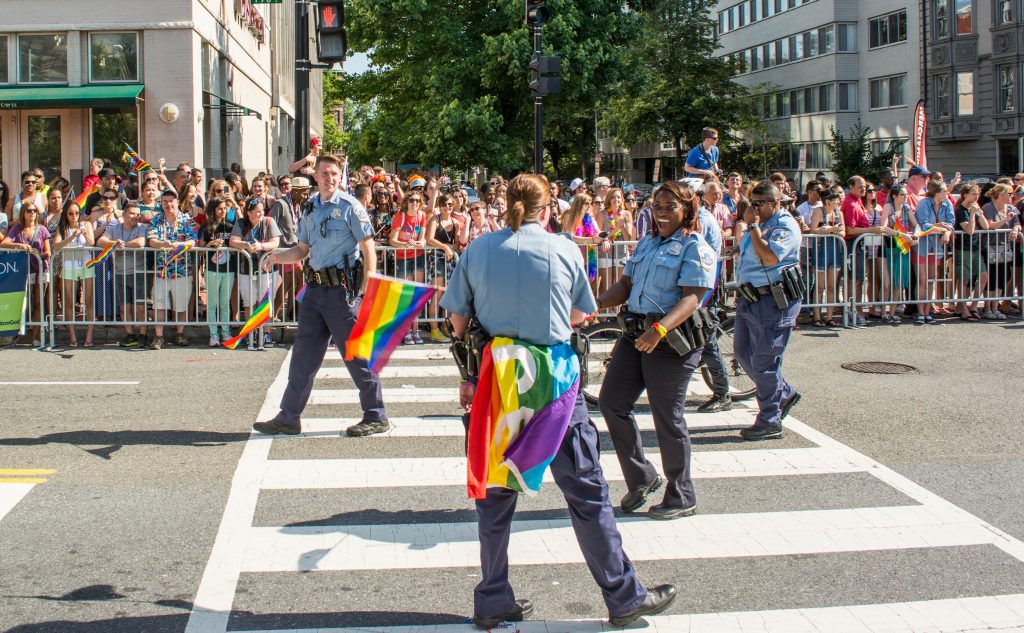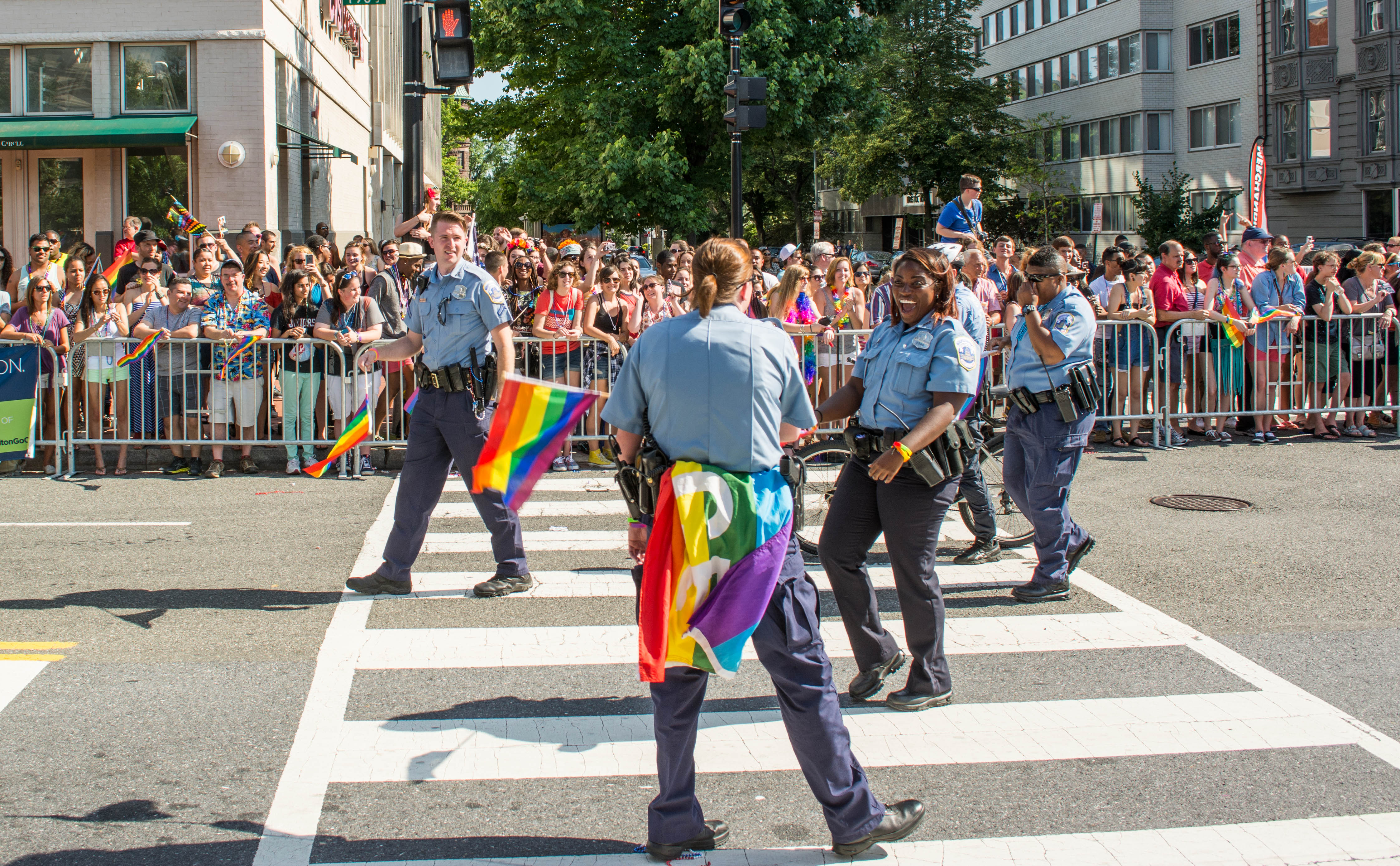
Police should respect the wishes of marginalized people
By Bex Peterson, Editor-in-Chief
The debate crops up every year over the month of June and throughout the summer as Pride events are held around the world—do cops belong at Pride?
To say it’s a contentious issue would be an understatement. If you have an opinion it’s bound to be a strong one, and for a while I had of a sort of pan-inclusive opinion. Everyone should be at Pride, right? Pride brings people together! What could possibly be a more powerful symbol of how far we’ve come, a nice bridge between two communities with a tumultuous history, than cops marching in uniform with Pride flags draped over police cruisers?
The fact that I’m white should really go without saying at this point, but it bears noting. I am mostly cis-presenting (if clockably queer) too. These intersections of privilege mean that I can write about “my” community having a “tumultuous history” with cops without a second thought. “My” community—cis-presenting white gays—are rarely, if ever, at risk of abuse by law enforcement. For many 2SLGBTQ+ people however, police oppression and brutality are absolutely still present realities, not just bygone notes in history—yes, in Canada, and yes, in Vancouver.
As outlined in an excellent feature by our Opinions Editor Jess Berget, Pride itself began as a riot against police abuse spearheaded by trans women of colour. Despite this, people of colour on the whole and trans people of colour especially have had to fight to have their voices heard and respected within 2SLGBTQ+ spaces, with the viewpoints of white people largely prioritized.
People of colour have made their discomfort with the presence of uniformed police officers marching in Pride known over the years, for obvious reasons. On a global scale, one does not need to look south of the border to find examples of institutionalized police violence against Black and Indigenous people (as just one case study, I highly recommend listening to Canadaland’s Thunder Bay podcast). Here in the Lower Mainland, our local Black Lives Matter branch protested Vancouver Pride until the organization scaled back police presence in the parade.
“As a [Black] queer person in Vancouver, I have never felt that there was an event that felt good or safe for me to go to,” said one of the protest organizers, Daniella Barreto, to the CBC back in 2017. “We don’t feel safe in a parade that celebrates a violent institution that consistently contributes to violence against [Black], Indigenous, and people of colour.”
Barreto’s concerns aren’t unfounded. BC Premier John Horgan himself expressed concerns last summer about the VPD’s “street check” records, which showed that police disproportionally targeted Indigenous and Black people. Pride is also meant to be inclusive of sex workers, another marginalized community with a significant crossover with gay and trans communities that the police often target. If the marginalized people Pride is meant to celebrate aren’t able to attend Pride for fear of encountering an institution with an ongoing track record of harassing them, then what exactly is the point of Pride in the first place?
I understand the instinct to think of Pride as some kind of healing trust exercise where we all join hands and forget our differences. However, the problems of police harassing marginalized communities won’t be solved by ignoring the safety and comfort of people of colour so a uniformed cop can get a photo op—and for the record, it’s not as though individual cops out of uniform and off-duty are banned from the celebrations. Trust has to be earned, and trust cannot exist without choice. A good way to start building that trust would be to respect the boundaries of marginalized people when and where they are placed.
Don’t agree with this perspective? Check out “War of the words: Pride includes police” for another perspective!


